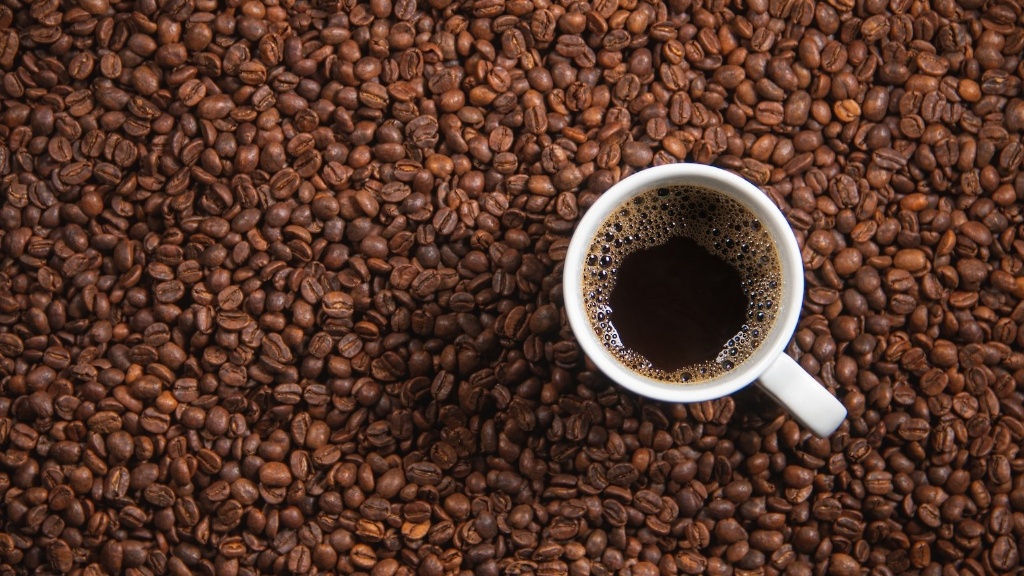Caffeine and Blood Sugar
Coffee is a popular drink that can have various effects on the body, including influencing how hungry a person feels. Caffeine, an active ingredient in coffee, has been linked to causing a decrease in blood sugar levels. This means that drinking coffee can make a person feel hungrier than they would without it.
However, it depends on the amount of caffeine in the cup and the individual’s level of sensitivity. Too much caffeine can lead to a drop in blood sugar, which can cause the body to crave food in order to restore its balance and make a person feel hungrier.
Caffeine is considered a stimulant which can cause the body to release hormones such as cortisol, adrenaline, and noradrenaline. These hormones can increase alertness but also trigger hunger. This is why many people feel hungry an hour or so after drinking coffee or other beverages that contain caffeine.
A study conducted by the American Journal of Clinical Nutrition found that when a certain group of people drank caffeine, their bodies released ghrelin, a hormone that causes a person to feel hungry. This study also found that participants who took higher doses of caffeine experienced a greater decrease in blood sugar levels and a greater rise in ghrelin than those who consumed low doses of caffeine.
The Role of Addiction
Apart from caffeine, another factor that can influence how hungry a person feels after drinking coffee is the addictive properties of caffeine. Caffeine has been identified as a mild stimulant drug and can become psychologically addictive in some people. As a result, when they cannot get their daily fix of caffeine, they may feel hungrier than normal.
Furthermore, those who suffer from caffeine addiction may find it difficult to stop consuming the substance, and this can lead to an increased appetite. The body will crave the substance when it isn’t getting it, and this can lead to an increase of hunger.
Coffee as an Appetite Suppressant
Although some people may experience an increased appetite from drinking coffee, this doesn’t mean that all people react in this way. In fact, some studies have suggested that drinking coffee may help suppress the appetite.
For instance, one study found that drinking coffee had an effect on participants’ food intake, making them eat less for the next three meals. This could be due to the fact that caffeine can reduce the taste of food and make it seem less appealing.
Another study found that consuming caffeine before an exercise session can lead to an increased calorie burn, which can reduce the appetite and lead to weight loss. It was also found that drinking coffee an hour before a meal can make a person less likely to eat more than they need.
Behavioral Strategies
When it comes to controlling hunger after drinking coffee, there are several techniques that a person can employ. It is important to remember that how a person responds to the effects of caffeine may vary depending on the individual.
One strategy is to limit the amount of coffee consumed in a day or to drink coffee in smaller amounts throughout the day instead of drinking one large cup. This can help regulate the release of hormones, reduce feelings of hunger, and maintain steady blood sugar levels.
Another tip is to consume coffee before meals rather than after them. This can help reduce the intensity of hunger before eating a meal and can help the person focus on eating only what the body needs.
Finally, it’s important to be mindful of the type of coffee that is consumed. Some coffees may have higher levels of caffeine than others, and can lead to greater hunger-inducing effects.
Health Effects
It is also necessary to be conscious of other effects that coffee can have on the body. People who drink coffee regularly may experience side effects such as headaches, heart palpitations, irritability and insomnia.
Consuming coffee can also increase the risk of developing long-term health conditions such as type 2 diabetes, cardiovascular disease and hypertension. It can also have an adverse effect on fertility and pregnancy.
These health effects should be taken into consideration when deciding whether or not to drink coffee regularly, as it can have both positive and negative impacts on the body.
Addressing Cravings and Hunger
It is important to find ways to address cravings and hunger when drinking coffee. Eating a balanced diet is important, as is drinking plenty of water. Eating healthy snacks that provide sustained energy can also be beneficial.
It is also important to be mindful of when coffee is consumed and whether it is accompanied by unhealthy foods or snacks. Eating healthy meals and snacks can reduce the cravings caused by coffee and allow the person to better control their hunger.
Extra Caffeine Tips
When consuming coffee, it is important to remember that too much caffeine can lead to an increase in hunger and other negative health effects. As such, it is important to find ways to stay within a safe range of caffeine intake.
It is also beneficial to look for alternatives to coffee that can provide the same energy boost without the adverse side effects. Examples include herbal teas, smoothies, and exercise. These can help to satisfy the need for energy without leading to an increase in hunger.
Conclusion
In conclusion, drinking coffee can make a person feel hungrier than normal. This is due to the effects of caffeine on blood sugar levels, hormones, and the addictive properties of caffeine. However, it is possible to find ways to address cravings and hunger when it comes to coffee consumption. By understanding how coffee affects the body and being mindful of the amount of caffeine being consumed, it is possible to mitigate the effects of coffee and find an appropriate balance.


